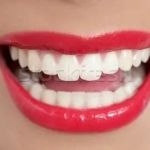For many individuals, wearing dentures or similar dental devices is a necessary part of their daily routine. However, the condition known as dry mouth (xerostomia) can complicate this reality, often making it challenging to wear these devices comfortably. As increasing numbers of people encounter dry mouth due to medications, aging, or health conditions, understanding its impact on dental devices is crucial, especially for those in the United States. In this article, we explore how dry mouth can affect the use and comfort of dentures and other dental devices, and provide practical solutions to manage these challenges.
The Connection Between Dry Mouth and Dentures
Dry mouth, medically referred to as xerostomia, occurs when the body fails to produce enough saliva, a condition that can significantly impact the use of dentures. Saliva is essential in ensuring dentures fit securely by creating a suction effect that helps hold the dentures in place. Without sufficient saliva, dentures can become loose, making it difficult to chew or speak properly. This lack of natural lubrication often leads to irritation and inflammation of the oral tissues.
In the USA, where dry mouth affects nearly 30% of the population, understanding this condition's effect on dental appliance usage is vital. Saliva also helps to protect the mouth from bacteria and fungal infections, meaning that those with dry mouth are more susceptible to oral health issues, such as gum infections and sores. In turn, these issues can make wearing and adjusting to dentures uncomfortable and even painful.
Challenges of Wearing Dental Devices with Dry Mouth
Individuals with dry mouth face unique challenges when it comes to wearing dental devices. First, without adequate saliva, the friction between the gums and dentures increases, leading to sore spots and blisters. This friction not only causes discomfort but can also result in the formation of lesions and ulcers, complicating the healing process and increasing the risk of infection.
Moreover, dry mouth can reduce the perceived fit of dentures. Dentures are designed to fit snugly against the gums, but a lack of saliva can cause these devices to slip or shift, undermining their primary function. This movement is not only inconvenient, affecting a person's ability to eat and speak confidently, but can also damage the gums and remaining teeth structures.
Managing Dry Mouth for Better Denture Fit
Thankfully, several strategies are available to alleviate the discomfort caused by dry mouth and improve the fit and function of dental devices. Proper hydration is fundamental; simply increasing water intake throughout the day can help maintain moisture in the mouth. Products like saliva substitutes and oral moisturizers can also provide temporary relief. Specialized denture adhesives might also be beneficial, offering added security by keeping dentures in place despite the lack of natural suction that saliva provides.
It’s essential for individuals experiencing dry mouth to consult their dentist regularly. These professionals can offer personalized advice and treatment options, such as prescribing medications to stimulate saliva production or recommending specific brands of moisturizing products. Furthermore, they can adjust dentures to better accommodate the dry mouth condition, ensuring a more comfortable fit.
Case Studies and Experiences
To put these challenges and recommendations into perspective, let’s look at a few real-world examples. Consider the experience of John, a 68-year-old from Texas, who struggled with dry mouth after being put on medication for hypertension. The condition made his dentures uncomfortable, and he frequently experienced sore gums. By working with his dentist, John was able to use a combination of saliva substitutes and adhesive products to improve his comfort significantly.
Similarly, Mary, a 75-year-old from Florida, found that switching to a specific type of denture adhesive made a profound difference. Her dentist recommended a brand designed for dry mouth sufferers, which enhanced the grip of her dentures and reduced irritation dramatically. These stories highlight how personalized approaches, often guided by dental professionals, can address dry mouth challenges effectively.
Conclusion: Taking Action Against Dry Mouth
In conclusion, while dry mouth can undoubtedly make wearing dentures and other dental devices more challenging, it is not an insurmountable problem. Understanding the role of saliva in maintaining denture fit and oral health is the first step towards addressing this issue. By staying hydrated, using dental products designed for dry mouth sufferers, and seeking professional dental advice, individuals can significantly mitigate the discomfort and functionality issues associated with dry mouth.
At Dentistry Toothtruth, we are committed to helping patients navigate these challenges and maintain optimal oral health. Regular dental check-ups and personalized care plans can make a meaningful difference, ensuring that dry mouth doesn’t get in the way of enjoying life with a complete and functional smile.

 White Pine Dental
White Pine Dental 24 Hour Dentist
24 Hour Dentist Amana Dental
Amana Dental CAMcare Health Corporation- Clementon
CAMcare Health Corporation- Clementon McCabe Orthodontics
McCabe Orthodontics Arthur Glosman, DDS
Arthur Glosman, DDS The Importance of Oral Health Education During Pregnancy for a Healthy Pregnancy
The Importance of Oral Health Education During Pregnancy for a Healthy Pregnancy Why Skipping Dental Checkups Can Lead to Bigger Oral Health Problems
Why Skipping Dental Checkups Can Lead to Bigger Oral Health Problems Advantages of Porcelain Dental Restorations
Advantages of Porcelain Dental Restorations Best Tips for Brushing Your Teeth Properly for Healthy Gums: Essential Techniques for Oral Health
Best Tips for Brushing Your Teeth Properly for Healthy Gums: Essential Techniques for Oral Health How Can Diabetes Cause Tooth and Gum Problems? Preventing and Managing Oral Health Issues
How Can Diabetes Cause Tooth and Gum Problems? Preventing and Managing Oral Health Issues Healthy Habits for Promoting Good Oral Health and Hygiene: Tips for a Healthy Smile
Healthy Habits for Promoting Good Oral Health and Hygiene: Tips for a Healthy Smile